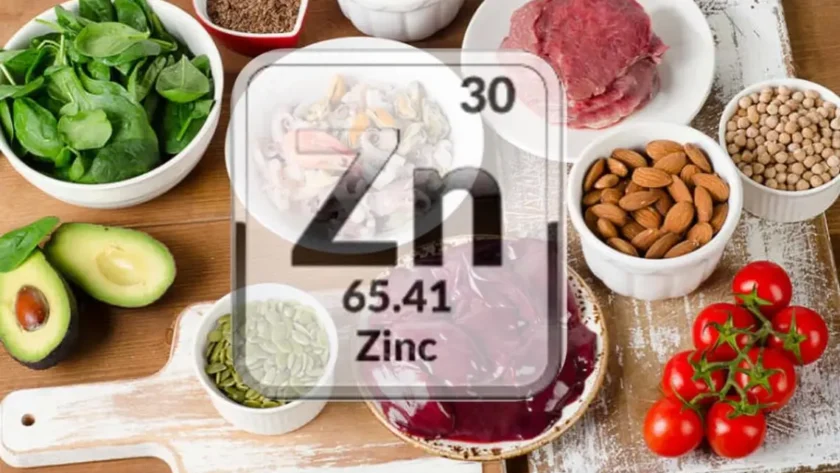Table of Contents
Unlock the surprising power of this essential mineral! This article explores the amazing Zinc Benefits you might not know about. From boosting testosterone to supporting your immune system, discover the seven unexpected Zinc Benefits that can transform your health. Learn how incorporating adequate Zinc Benefits into your diet can lead to significant improvements in various aspects of your well-being.
Brief The Article:
Unexpected benefits of zinc
- Maintaining testosterone levels
- Stabilizing insulin and potentially preventing diabetes
- Supporting muscle repair, especially the soleus muscle
- Decreasing the risk of thymus atrophy
- Improving night vision
- Reducing dry, flaky skin
- Decreasing intestinal inflammation
Why is zinc important for health?
- Involved in more enzyme systems than all other trace minerals combined
- Essential for proper functioning of the immune system
- Crucial for maintaining hormone balance, especially testosterone
- Plays a vital role in insulin regulation and diabetes prevention
- Necessary for muscle repair and regeneration
- Important for skin health and wound healing
How does zinc deficiency affect the body?
- Can lead to low testosterone, low libido, and hypogonadism
- May contribute to insulin resistance and diabetes
- Can cause muscle dysfunction, especially in the soleus muscle
- May weaken the immune system through thymus atrophy
- Can impair night vision
- May result in dry, flaky, and rough skin
- Can increase the risk of intestinal inflammation and ulcers
What causes zinc deficiency?
- Use of birth control pills
- High consumption of refined carbohydrates and sugar
- Phytic acid in grains blocking zinc absorption
- Stress and high cortisol levels
- Use of certain medications like prednisone
- Low hydrochloric acid in the stomach
- Excessive alcohol consumption
How can zinc deficiency be addressed?
- Increase consumption of zinc-rich foods, especially red meat
- Consider zinc supplements under medical supervision
- Reduce consumption of foods high in phytic acid
- Address underlying causes of poor zinc absorption
- Get tested for zinc deficiency (blood tests may not be accurate; consult a healthcare professional)
Why is zinc important for specific body functions?
- Prostate health: Zinc is highly concentrated in the prostate gland
- Insulin regulation: Zinc is crucial for insulin production in pancreatic beta cells
- Muscle function: The soleus muscle has the highest concentration of zinc
- Immune system: Zinc is essential for proper thymus gland function
- Vision: Zinc is necessary for activating vitamin A for night vision
- Skin health: Zinc helps maintain smooth and healthy skin
- Gut health: Zinc helps reduce intestinal inflammation and heal ulcers
So let’s dive into the details…
7 Unexpected Ways This Mineral Can Improve Your Health
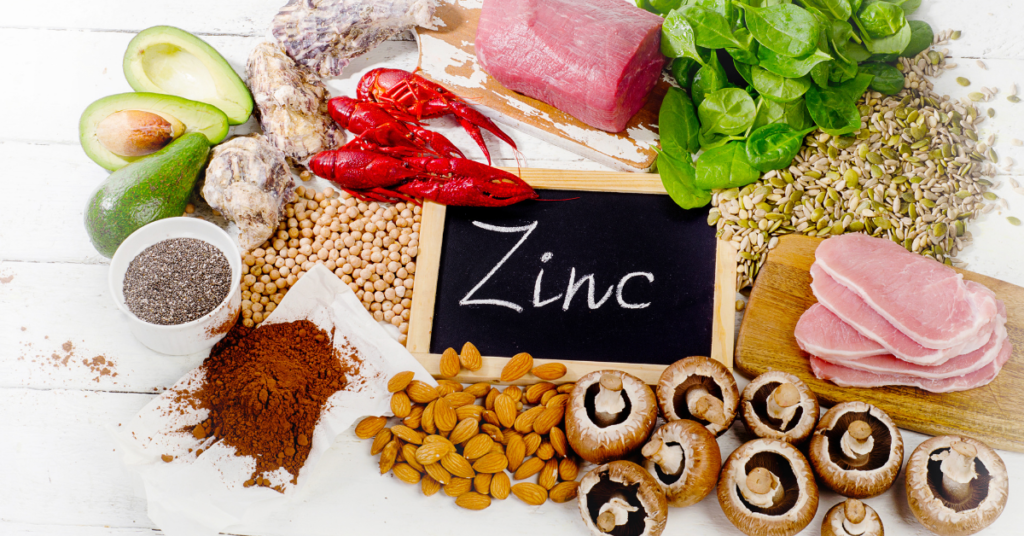
I’m going to talk about the seven unexpected amazing benefits of the trace mineral zinc. Now I would say out of all the health topics,
making this minor tweak in your diet will probably result in one of the major improvements in your health because zinc is involved in more enzyme systems than all of the other trace minerals combined and over 2 billion people are deficient in zinc.
And one of the big problems with zinc is that there’s no functional storage of zinc in your body. So as soon as you stop getting zinc from the diet, you’re going to be deficient.
- Zinc is a crucial trace mineral involved in numerous enzyme systems.
- Over 2 billion people are zinc deficient.
- The body doesn’t store zinc effectively, making regular intake essential.
Why Testing for Zinc Deficiency Can Be Tricky
And you might think that you can just determine a zinc deficiency by a blood test, but most of the zinc is not in the blood, it’s in the cells and so we’re going to talk about that.
- Blood tests may not accurately reflect zinc levels as most zinc is stored within cells.
Zinc Benefits
So let’s dive into the first point. The most concentrated amount of zinc is located in the prostate gland, okay? Because it’s involvement with sperm and testosterone, etc.
Zinc Benefit #1: Maintaining Testosterone Levels
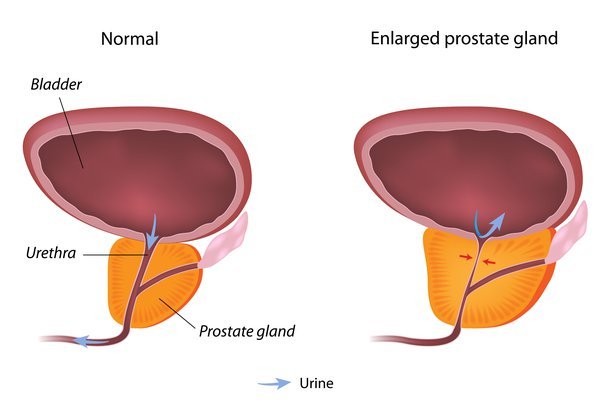
And so zinc helps someone maintain their testosterone levels and if they’re deficient, they’re definitely going to experience problems with low testosterone, low libido, and even something called hypogonadism in which the testicle actually trophies.
So many people don’t realize the importance of getting enough zinc to maintain the testosterone levels.
- Zinc is crucial for maintaining healthy testosterone levels.
- Zinc deficiency can lead to:
- Low testosterone
- Low libido
- Hypogonadism (testicular atrophy)
Zinc Benefits: Supporting Insulin Sensitivity and Blood Sugar Control
All right number two, and this one is a really really interesting one. Zinc has a major role in maintaining your insulin levels okay, as well as the insulin binding to your liver cells.
Zinc Benefit #2: Stabilizing Insulin Levels

So the second most concentrated area for zinc in your body is in the pancreas, specifically the cells that produce insulin in the pancreas. They’re called the beta cells and so when we’re dealing with diabetes, for example, zinc becomes very very important.
- Zinc plays a vital role in regulating insulin levels and its binding to liver cells.
- The pancreas, specifically the beta cells that produce insulin, contains a high concentration of zinc.
Understanding Insulin Resistance and the Role of Zinc
Now before you get diabetes, you get pre-diabetes. Before you get pre-diabetes, you have insulin resistance. Pretty much all diabetics have insulin resistance.
In fact, the majority of the population on planet earth has insulin resistance. I’ve talked extensively about this topic but the importance of zinc in avoiding or preventing in some resistance is uh is not really well known.
- Insulin resistance is a precursor to pre-diabetes and diabetes.
- Zinc is crucial for preventing and managing insulin resistance.
The Connection Between Zinc Deficiency, Insulin Resistance, and Diabetes

So you may already know that if someone has insulin resistance, you’re very susceptible to getting a fatty liver, cirrhosis of the liver, um increase your risk of getting a stroke, heart attack, obesity, high blood pressure,
but if you don’t have enough zinc, your beta cells, the cells that make insulin become fatigued. Now just think about this, what determines someone going into a pre-diabetic and then a diabetic situation?
- Insulin resistance increases the risk of various health problems, including fatty liver, stroke, heart attack, obesity, and high blood pressure.
- Zinc deficiency can lead to beta cell fatigue, contributing to the development of pre-diabetes and diabetes.
How Zinc Deficiency Can Lead to Beta Cell Burnout and Diabetes
Now when someone has diabetes, insulin is no longer working or it’s becoming less and less in the body and then the blood sugars start to go out of control, they start increasing because insulin kind of keeps the blood sugar in check.
So when someone eats a lot of sugar, normally you have insulin that comes in there and it keeps the sugar down so your blood sugars don’t build up and they can be maintained. You can do that for a period of time, but eventually, over the years, maybe I don’t know 10 15 20 years,
it’s that beta cell starts to become fatigue. Well, what I believe that’s happening deep in the cells is that somehow a person loses the amount of zinc that’s in that pancreas.
Then the beta cell starts burning out. That’s when you start having diabetes and more complications because zinc is a very powerful antioxidant and the fact that someone’s consuming a lot of carbohydrates and the insulin is high, that right there will deplete your zinc even more.
- In diabetes, insulin function is impaired, leading to elevated blood sugar levels.
- Zinc acts as an antioxidant, protecting beta cells from damage.
- High carbohydrate consumption and elevated insulin levels can further deplete zinc stores.
The Chicken or the Egg: Zinc Deficiency and Carbohydrate Consumption
So it’s kind of like is it the chicken or the egg? Well, a zinc deficiency can set you up for weakness with having a problem with the beta cell,
but then the diet of consuming all those carbs are going to deplete you in zinc. So then the fact that the person now has diabetes creates more of a zinc deficiency.
- Zinc deficiency can contribute to beta cell dysfunction, while high carbohydrate intake further depletes zinc, creating a vicious cycle.
The Importance of Zinc for Blood Sugar Control and Diabetes Management
So what you need to know is that zinc is really really really important in helping someone overcome pre-diabetes and diabetes. So zinc will help lower your blood sugars and make insulin more sensitive.
- Zinc is essential for improving insulin sensitivity and managing blood sugar levels.
Zinc Benefit #3: Muscle Repair and Regeneration
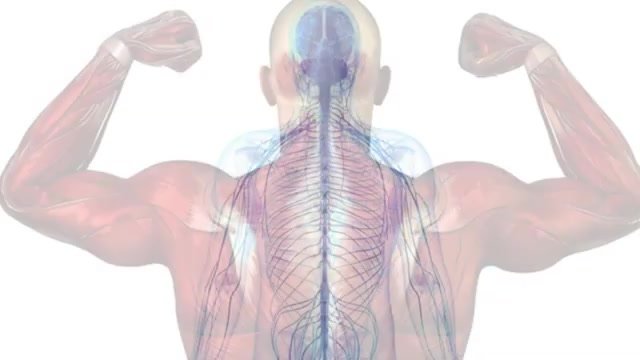
All right number three, this is also very interesting. The third most concentrated tissue with zinc in your body is your muscles.
And so zinc is needed for muscle repair and regeneration, but even if someone is deficient in zinc, apparently the muscles can still function fine except one muscle, and that muscle is the soleus muscle.
- Zinc is essential for muscle repair and regeneration.
- Zinc deficiency primarily affects the soleus muscle.
The Soleus Muscle: A Zinc-Dependent Powerhouse
Now what is the soleus muscle? That is the muscle in your calf just underneath another calf muscle called the gastrocnemius muscle.
So the soleus is a deeper calf muscle that attaches to your Achilles tendon. It can withstand a tremendous amount of load and out of all the muscles in the body, the soleus has the highest concentration of zinc.
- The soleus muscle, located in the calf, is crucial for endurance and explosive movements.
- It has the highest concentration of zinc of any muscle in the body.
The Impact of Zinc Deficiency on the Soleus Muscle

And so the soleus is very very important in endurance. So a long-distance runner needs a very healthy soleus, someone that is a basketball player who uses explosive movements
needs a very healthy soleus muscle and when you’re deficient in zinc, the soleus can actually atrophy, it can have a dysfunction in contraction and relaxation, making you more susceptible to getting an injury with the knee as well as the calf as well as the Achilles tendon.
- Zinc deficiency can lead to soleus muscle atrophy and dysfunction, increasing the risk of injuries to the knee, calf, and Achilles tendon.
Zinc, Red Meat, and Muscle Growth
If you’re trying to build a calf muscle and you don’t have enough zinc, you may find that you never develop your calf muscles.
Now as a side note, there’s four times more zinc in red meat than white meat. Now a lot of people that are working out consume like chicken breast, broccoli, rice, grains, right?
And what they don’t know is because they’re not consuming enough red meat, they’re probably not going to get as much zinc.
- Red meat contains significantly more zinc than white meat.
- Diets lacking red meat may contribute to zinc deficiency, impacting muscle growth and development.
Phytic Acid and Zinc Absorption
Not to mention when you consume grains that have this chemical called phytic acid, which is a naturally occurring chemical that locks up zinc and other minerals
that could be one reason why they’re deficient. In fact, a good portion of the population on planet earth is deficient in zinc because they consume cereals, which are grains, which block the absorption of zinc.
- Phytic acid, found in grains, can inhibit zinc absorption.
- Cereal consumption, a common source of grains, may contribute to zinc deficiency.
The Importance of Zinc for Athletic Performance and Injury Prevention
So zinc is very important to the soleus muscle in protecting the knee and the ankle and your ability to perform sports.
- Zinc plays a crucial role in maintaining the health and function of the soleus muscle, contributing to athletic performance and injury prevention.
Zinc Benefit #4: Supporting Immune Function and Thymus Gland Health
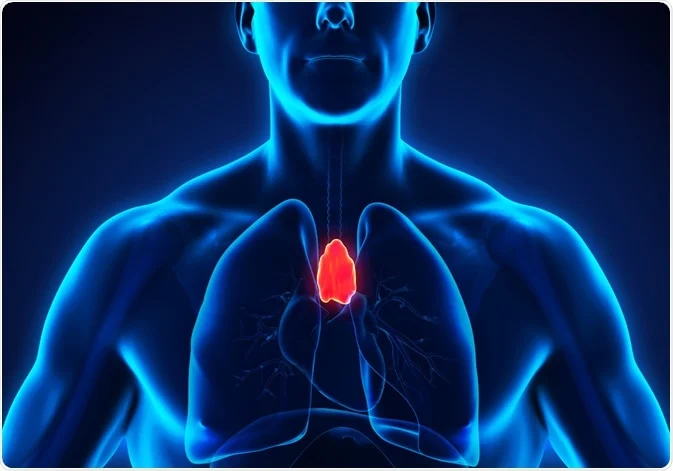
Number four, your thymus gland, the main gland that is involved in your immune system. It’s right on top of the heart, it’s different than the thyroid, it’s called the thymus, okay?
And if you’re deficient in zinc, one big problem you may experience is thymus atrophy, okay? And then what can result from that is low T cells and low antibodies. And think about your immune system, if you have low antibodies and low T cells, you can’t fight as long.
So if someone is, you can’t fight, it can’t fight infections. So it happens the duration of infections are a lot longer if you are zinc deficient.
- Zinc is essential for maintaining the health and function of the thymus gland, a key component of the immune system.
- Zinc deficiency can lead to thymus atrophy, resulting in lower T cell and antibody production, and a weakened immune response.
Zinc Benefit #5: Improving Night Vision and Skin Health

Now number five, you may know if you’re deficient in vitamin A you might have problems seeing at night, but zinc is just as important as vitamin A in making the active form of vitamin A activated, okay?
So if you’re deficient in zinc, yet you’re still consuming enough vitamin A, you might still have a problem seeing in the dark. So in other words, vitamin A needs zinc to work.
- Zinc is crucial for activating vitamin A, which is essential for night vision.
- Zinc deficiency can impair night vision, even with adequate vitamin A intake.
Zinc Benefit #6: Decreasing Dry, Flaky Skin
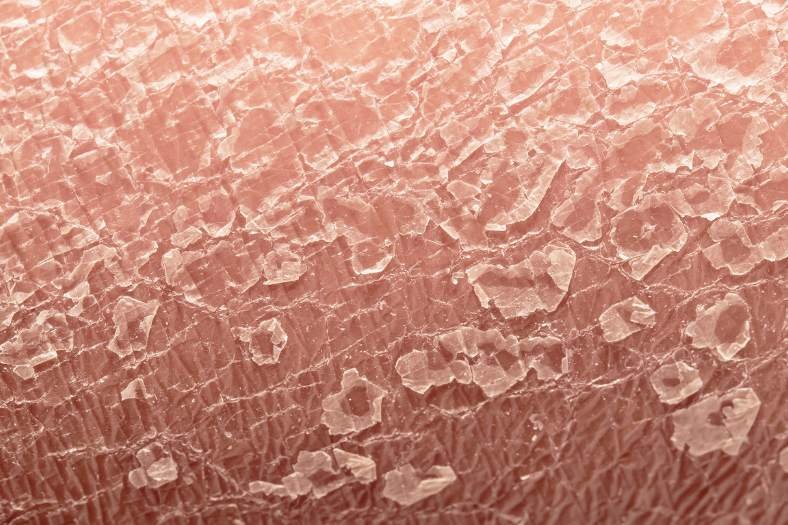
All right, number six, your skin needs zinc. Without enough zinc, you’re going to notice you’ll get dry, flaky skin, your skin will become roughened, it won’t be nice and smooth.
- Zinc is essential for maintaining healthy skin.
- Zinc deficiency can lead to dry, flaky, and rough skin.
Zinc Benefit #7: Decreasing Intestinal Inflammation
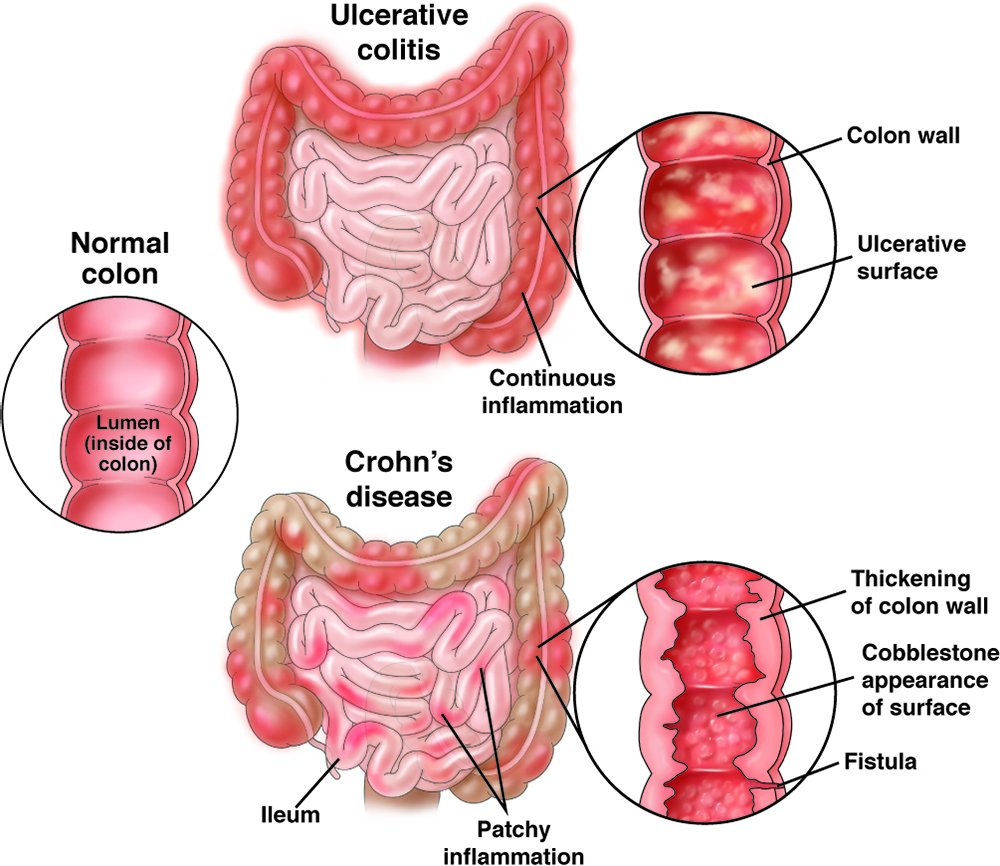
And number seven, intestinal inflammation. A lot of remedies for either an ulcer in your small intestine or your stomach become greatly improved with zinc.
If you’re deficient in zinc, your risk for getting inflammatory conditions goes way up and then when you have inflammation in your intestine, that can block your ability to absorb zinc. So this is why so many people with gut issues have skin issues because of this lack of absorption of zinc.
- Zinc can help reduce intestinal inflammation.
- Zinc deficiency increases the risk of inflammatory conditions in the gut, which can further impair zinc absorption and contribute to skin problems.
Causes of Zinc Deficiency: Understanding the Risk Factors
Now, how do we become deficient in zinc? There are several key things I’m just going to run through them. Uh, birth control pills can cause a zinc deficiency.
consuming a lot of refined carbs or sugar create a zinc deficiency. Phytic acid in grains will block zinc. Stress, cortisol, and even the medication called prednisone, which is a synthetic version of cortisol can deplete your zinc.
Having low hydrochloric acid can prevent your ability to absorb zinc, which is very common if you’re over the age of 45 and alcohol can create a zinc deficiency.
- Causes of zinc deficiency include:
- Birth control pills
- High refined carbohydrate and sugar intake
- Phytic acid in grains
- Stress and cortisol
- Prednisone (corticosteroid medication)
- Low hydrochloric acid (common in those over 45)
- Alcohol consumption
Summary
- Including more zinc in your diet could result in major improvements in your health. Zinc is involved in more enzyme systems than all of the other trace minerals combined.
- Over two billion people have a zinc deficiency. There is no functional storage for zinc in the body. So, as soon as you stop getting zinc from your diet, you could be deficient in zinc.
Amazing benefits of zinc:
- Zinc helps maintain testosterone levels
- Zinc helps stabilize insulin and lower blood sugar levels
- Zinc supports muscle repair and regeneration
- Zinc decreases your risk of thymus atrophy
- Zinc supports better night vision
- Zinc decreases your risk of dry flaky skin
- Zinc decreases your risk of intestinal inflammation
Top causes of a zinc deficiency:
• Birth control pills
• Refined carbs or sugar
• Phytic acid in grains
• Stress (high cortisol)
• Prednisone
• Low hydrochloric acid
• Alcohol
References:
https://pubmed.ncbi.nlm.nih.gov/72960
https://www.ncbi.nlm.nih.gov/pmc/articles/PMC3395787/
https://www.ncbi.nlm.nih.gov/pmc/articles/PMC7284914/
https://journals.physiology.org/doi/full/10.1152/ajpregu.00263.2009
https://academic.oup.com/endo/article/151/10/4696/2456241?login=false
FAQ
What are the immediate benefits of zinc?
Zinc offers several immediate benefits:
- Immune system boost: Zinc can quickly enhance your body’s defense mechanisms.
- Improved wound healing: Zinc aids in faster tissue repair and regeneration.
- Enhanced taste and smell: Zinc deficiency can impair these senses; supplementation may quickly improve them.
- Reduced inflammation: Zinc has anti-inflammatory properties that can provide quick relief.
- Better skin health: Topical or oral zinc can help with acne and other skin issues relatively quickly.
While these benefits can be noticed soon after supplementation, the full effects may take days to weeks to manifest.
What happens if I take zinc every day?
Taking zinc daily, within recommended doses, can lead to:
- Consistent immune support: Regular intake helps maintain a strong immune system.
- Improved cellular function: Zinc is crucial for many enzymatic processes in the body.
- Better hormone balance: Particularly important for testosterone production in men.
- Enhanced cognitive function: Zinc plays a role in brain health and cognitive processes.
- Improved skin, hair, and nail health: These tissues benefit from consistent zinc levels.
However, it’s important not to exceed the recommended daily allowance, as too much zinc can lead to adverse effects and interfere with the absorption of other minerals.
Why does zinc make me feel better?
Zinc can make you feel better due to its wide-ranging effects on the body:
- Improved energy levels: Zinc is involved in energy metabolism.
- Enhanced mood: Zinc plays a role in neurotransmitter function, potentially affecting mood.
- Better sleep quality: Zinc is involved in the production of melatonin, the sleep hormone.
- Reduced inflammation: This can lead to less pain and better overall well-being.
- Improved digestion: Zinc aids in the production of digestive enzymes.
If you were deficient in zinc, supplementation could lead to a noticeable improvement in how you feel overall.
How long does it take to notice a difference when taking zinc?
The time frame for noticing benefits from zinc supplementation can vary:
- Immediate effects: Some people report feeling better within hours or days, especially regarding immune function and energy levels.
- Short-term benefits: Improvements in skin health, wound healing, and taste/smell can often be noticed within 1-2 weeks.
- Long-term benefits: Effects on hormonal balance, cognitive function, and overall health may take several weeks to months to become noticeable.
The speed and extent of benefits depend on your initial zinc status, dosage, and individual factors. Consistent supplementation is key for long-term benefits.
Benefits of zinc sexually
Zinc plays a crucial role in sexual health for both men and women:
- For men:
- Supports testosterone production
- Improves sperm quality and motility
- May help with erectile function
- For women:
- Supports reproductive health
- May improve libido
- Helps regulate menstrual cycles
- For both:
- Enhances energy levels
- Supports overall reproductive organ health
- May improve sexual satisfaction
Adequate zinc levels are essential for maintaining optimal sexual health and function.
Maximum zinc dose in pregnancy
During pregnancy, zinc needs increase, but it’s crucial not to exceed safe levels:
- Recommended Dietary Allowance (RDA): 11-12 mg/day for pregnant women
- Upper Limit (UL): 40 mg/day from all sources (food and supplements)
- Prenatal vitamins: Often contain 15-25 mg of zinc
It’s important to consult with a healthcare provider before taking additional zinc supplements during pregnancy. Excess zinc can interfere with iron and copper absorption, which are also crucial during pregnancy.
Zinc benefits for women
Zinc offers numerous benefits specific to women’s health:
- Hormonal balance: Supports regulation of estrogen and progesterone
- Reproductive health: Essential for egg production and embryo development
- Menstrual health: May help reduce PMS symptoms and regulate cycles
- Bone health: Supports bone density, particularly important post-menopause
- Skin health: Aids in collagen production and may help with acne
- Immune support: Particularly important during pregnancy and breastfeeding
- Cognitive function: Supports brain health and may help prevent age-related cognitive decline
Adequate zinc intake is crucial for women throughout all stages of life, from adolescence through menopause and beyond.
Is 50mg of zinc too much
50mg of zinc is generally considered above the recommended daily intake:
- Recommended Dietary Allowance (RDA): 8-11 mg/day for adults
- Upper Limit (UL): 40 mg/day from all sources
- Potential side effects of excess zinc:
- Nausea and vomiting
- Loss of appetite
- Abdominal cramps
- Diarrhea
- Headaches
While short-term use of 50mg zinc may be prescribed for specific conditions, long-term use at this level should be avoided unless under medical supervision. Excess zinc can interfere with copper absorption and potentially weaken the immune system.
How much zinc per day for a woman
The recommended daily zinc intake for women varies based on age and life stage:
- Adult women (19+ years): 8 mg/day
- Pregnant women: 11 mg/day
- Breastfeeding women: 12 mg/day
- Upper Limit (UL): 40 mg/day from all sources
These amounts can typically be obtained through a balanced diet. However, certain conditions or dietary restrictions may necessitate supplementation. Always consult with a healthcare provider before starting any new supplement regimen.
Can I take 50mg of zinc while pregnant
Taking 50mg of zinc while pregnant is not recommended:
- Recommended intake during pregnancy: 11 mg/day
- Upper Limit (UL) during pregnancy: 40 mg/day from all sources
- Risks of excess zinc during pregnancy:
- Interference with iron and copper absorption
- Potential nausea and gastrointestinal discomfort
- Possible negative effects on fetal development
Most prenatal vitamins contain adequate zinc. Always consult with your healthcare provider before taking additional zinc supplements during pregnancy. They can assess your individual needs and ensure safe supplementation.
Zinc tablets benefits
Zinc tablets can offer various health benefits:
- Immune system support: Helps fight off infections and reduce the duration of colds
- Wound healing: Accelerates tissue repair and regeneration
- Skin health: May help with acne, eczema, and other skin conditions
- Eye health: Supports vision and may help prevent age-related macular degeneration
- Cognitive function: Supports brain health and may improve memory and focus
- Hormonal balance: Particularly important for testosterone production in men
- Digestive health: Aids in the production of digestive enzymes
While these benefits are significant, it’s important to take zinc tablets as directed and not exceed recommended doses. Always consult with a healthcare provider before starting any new supplement regimen.
Benefits of zinc for men
Zinc offers several specific benefits for men’s health:
- Testosterone production: Zinc is crucial for maintaining healthy testosterone levels
- Prostate health: May help reduce the risk of benign prostatic hyperplasia (BPH) and prostate cancer
- Sperm quality: Improves sperm count, motility, and morphology
- Sexual function: Supports libido and may help with erectile function
- Muscle growth and repair: Essential for protein synthesis and muscle recovery
- Hair health: May help prevent hair loss and support healthy hair growth
- Cognitive function: Supports brain health and may improve mood and mental clarity

